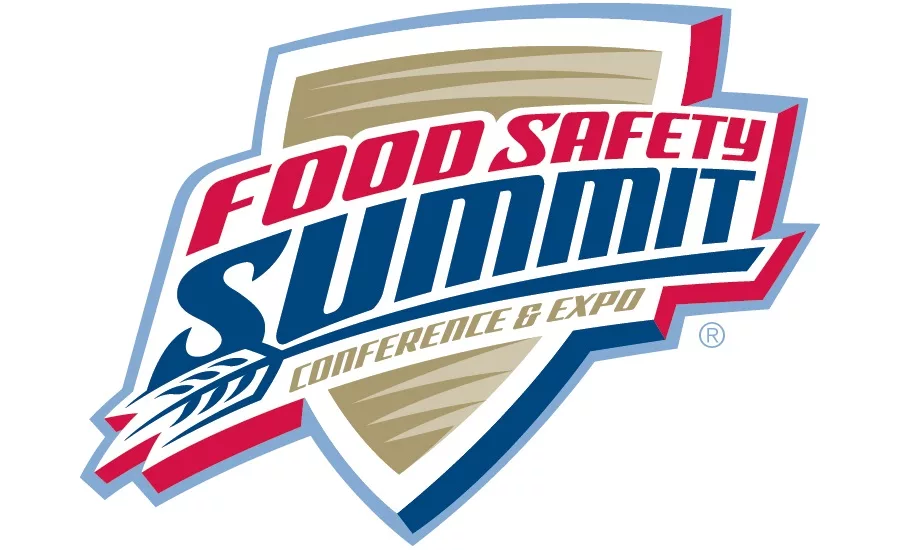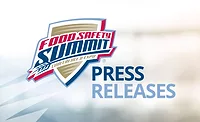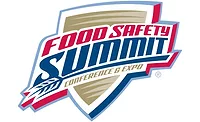Educational Advisory Board Members Share Insights on What to Expect at the 2021 Virtual Food Safety Summit

The Food Safety Summit has an outstanding Educational Advisory Board (EAB) composed of leaders in foodservice, retail, manufacturing, regulatory, academia, and advisors in legal, supply chain, and more. The education program for the annual meeting is developed by over two dozen professionals who gather to brainstorm and discuss the best ways to present information about the most important emerging trends impacting food safety professionals.
Recently, we had a chance to get insight from several members of the EAB to hear about the impact of the pandemic on the food safety industry, the importance of the Summit, and what innovations will be shared at the upcoming event taking place online May 11–13, 2021.
Gary Ades, Ph.D., President, G&L Consulting Group
I have had the privilege to develop and chair the EAB over the past 12 years. We are a diverse group made up industry experts that represent the food industry including growers, manufacturers, retail/foodservice, academicians, and government representatives from The U.S. Food and Drug Administration (FDA), U.S. Department of Agriculture (USDA), Association of Food and Drug Officials (AFDO), and the U.S. Centers for Disease Control and Prevention (CDC). The professionals on this board share their expertise freely and help put together the whole education program that address the theme solutions for today and planning for tomorrow. The Summit is not a technically oriented meeting; our goal is to provide solutions in the education program and in the exhibit hall for our attendees and share professional development support to help them succeed.
I look forward to moderating the 10th annual Town Hall on Wednesday, May 13, which will welcome Sandra Eskin, new Deputy Undersecretary for Food Safety, USDA, and Sherri McGarry Health Scientist Microbiologist, CDC Liaison to FDA for Food Safety, who will join Steven Mandernach, J.D., Executive Director, AFDO, Robert Tauxe, M.D., M.P.H., Director, Division of Foodborne, Waterborne and Environmental Disease, National Center for Emerging and Zoonotic Infectious Diseases, CDC, and Frank Yiannas, Deputy Commissioner for Food Policy and Response.
Craig Henry, Ph.D., Food Safety Consultant
One of the key factors of the Summit is that the attendees and the speakers are very much engaged in the industry, the supply chain, and the regulatory environment. I think it’s critical for anyone in the food industry to come to the Summit to hear from a host of excellent speakers who will dive into the innovations that have come about through 2021. As we continue to improve productivity to make better strides in compliance, which will be extremely important, we see new entities such as OSHA inspections to help support the frontline workers and the overall food industry. All of this will be discussed during the Summit.
Looking for quick answers on food safety topics?
Try Ask FSM, our new smart AI search tool.
Ask FSM →
I invite the attendees to our opening session on “State of the Industry” – Effects of COVID-19 on Current and Future Management Practices. As the pandemic moves into 2021, the extension of the supply chain and the variability of supply chain components, such as ingredients and other products being used by both retailers and restaurants, automatically creates some additional concern about the overall food safety of the product. This has also created additional demands for local inspectors. The new normal is still being defined, but vaccinations will certainly have implications on food safety workers.
Steven Mandernach, Executive Director, AFDO
The EAB has experts from ever portion of the food system. This board is like my personal rolodex with representatives from manufacturing, distribution, grocery, foodservice, produce, everything you can image—both in private industry, university, and government. We work together to identify topics 10 months out, and the program evolves as we get closer to the event. I will be participating in the Town Hall Meeting, which is a unique event to the Summit where we address what is happening in food safety within the regulatory community and industry.
The Summit’s virtual platform makes it possible to have educational events allowing for interaction to happen during this global pandemic. What is unique for the Summit is the concept that the panels offer really interesting discussions with divergent opinions. Attendees have a chance to hear from colleagues who have done things well as what went wrong to help educate others.
Shawn Stevens, Founder, Food Industry Consultant and Lawyer, Food Industry Council LLC
The Summit provides an incredible opportunity for thought leaders and thought learners to learn from each other and share experiences by coming together especially now as we start to emerge from COVID. The Food Safety Summit is the beacon on the horizon to share our experiences and come out of Summit better than ever before. At the Summit, we grow relationships, we become friends and colleagues, we get to know each other and each other’s families and discuss where the industry is going and what new regulations are coming. The Summit is a great opportunity for vendors of services to interact and to meet new people and develop new relationships. The professionals in this industry are all motivated to make the world a better place.
At the Summit, I will be part of a session on Food Safety Leadership. There has been a big decrease in foodborne illnesses as restaurants are serving less food and food handlers are washing their hands more and wearing masks. We are all more aware of the need to exercise personal hygiene to protect ourselves and our customers. Our food is also safer now with enhanced training the enhanced awareness because of the new regulations. The regulations will continue to evolve with FDA’s propose traceability rules and perhaps regulating food safety culture which starts with organization leadership.
Deb Kane, M.Sc., Director of Food Safety & QA, J&J Snack Foods
We come together as a food safety community because we share the same challenges—whether it is an operations team in a poultry facility or in the factory of the snack food industry. I find that food safety professionals are very willing to share what did not work as well as share their successes. Food safety is not a competitive advantage—we are all in this together. If there is ever a recall, it has an impact for the whole industry. I think the Summit is full of professionals who are willing to share openly and form relationships that will last a lifetime—it is a valuable experience.
During the Summit, I will be presenting on How to Take Care of Yourself, Each Other, Employees and Communities. During the pandemic, we have gotten better as an industry in virtual audits—we have taken advantage of zoom meetings and company-wide meetings that would typically be on site. Our supplier relationships are stronger to find out if ingredients were available throughout the pandemic. In our industry, individually wrapped items were a game changer, and now our employees understand handwashing. The global pandemic caught us by surprise, we had to keep up with the science and the ever-changing CDC guidelines, and I am hopeful and optimistic about the future.
Lee-Ann Jaykus, Ph.D., William Neal Reynolds Distinguished Professor & NoroCORE Scientific Director, North Carolina State University
I have been on the EAB for seven years and love the way it’s structured with regulators, supply chain leaders, and academicians, as we bring diverse ideas and opinions. We meet several times to come up with the program during brainstorming sessions, and we discuss emerging trends, which help make up the program. The Summit is the meeting geared toward the people who are doing food safety—those practitioners who have their boots on the ground on a day-to-day basis. They are able to digest great information and bring solutions and ideas back to their organizations.
We are presenting a session on Policies and Practices Related to Norovirus Outbreaks, which will take place on Tuesday, May 11. During the session, we will address the emerging evidence that the number of norovirus outbreaks during the pandemic has come down significantly. This is due to the controls that have been put in place including system and temperature screening, increased use of sanitation and hygiene, plexiglass shields in the absence of social distancing, attention to ventilation, etc. All of these put into effect mitigate transmission in the workforce. We have increased hygiene and sanitation, which is going to prevent certain things like norovirus.
My advice for young and mid-level career professionals is to get yourself involved in food safety communities—having a network is extremely important and by attending the Food Safety Summit is a great way to connect and network. You may not learn this is school, but this is an important strategy.
The 2021 Food Safety Summit will be presented as a virtual event May 11–13, 2021. The education sessions will focus on the unique challenges of the “new normal” in four topic areas: COVID-19 and Beyond, Regulatory and Legal Issues, Tools and Technology, and Support for Food Safety Professionals. The Summit offers a stellar line up of experienced speakers including food safety professionals from Costco, The Wendy’s Company, The Cheesecake Factory, FDA, CDC, USDA, AFDO, Sysco Corporation, as well as academicians from North Carolina State, Illinois Institute of Technology, Rutgers University, and Michigan State University, to name a few. To download the full digital brochure and register for the Summit, visit www.foodsafetysummit.com.







